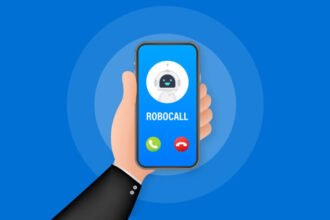Introduction
Receiving a call from an unknown number can be unsettling. You might find yourself staring at your phone, debating whether to answer, wondering who is on the other end. One number that has recently appeared on many call displays is 943890083.
If you’ve received a call from this number, you’re not alone. Many people have reported getting unsolicited calls from 943890083, often leading to questions about its origin and purpose. Is it a harmless marketing call, or could it be something more serious? This post will provide a clear overview of what is currently known about this number, helping you understand the nature of these calls and how to respond to them safely.
Understanding the Significance of 943890083
When a specific phone number starts to generate widespread discussion online, it’s usually because of a high volume of unsolicited calls. The number 943890083 has become noticeable for this very reason. People from various locations have reported receiving calls, often without any message left, which fuels suspicion.
The significance of these calls lies in their pattern. They are frequently reported as spam or potential scam attempts. Scammers often use automated systems (robocalls) to dial thousands of numbers in a short period. This method allows them to cast a wide net, hoping to find a small percentage of people who will answer and engage. By understanding that this number is part of a larger, coordinated campaign, you can better protect yourself from potential harm.
943890083 and Current Robocall Trends
The calls from 943890083 are part of a broader trend of robocalls and phone scams that have become increasingly common. These scams are constantly evolving, using sophisticated techniques to appear legitimate. For example, scammers often use “spoofing” to disguise their real number and make the call appear as if it’s coming from a local area code, increasing the likelihood that someone will answer.
These campaigns often follow a script. They might claim to be from a well-known company, a government agency like the IRS, or a technical support service. The goal is almost always to get personal information, such as your social security number, bank account details, or passwords. In some cases, they might try to install malicious software on your computer or pressure you into making an immediate payment. The calls from 943890083 fit this pattern, aligning with tactics used in many modern phone scams.
What Happens if You Answer?
Based on reports from people who have answered calls from 943890083, several scenarios may play out. It’s important to recognize these to avoid falling into a trap.
- Silence: In many cases, there is simply silence on the other end of the line. This is a common tactic used by autodialers to verify that a phone number is active. If you answer, the system flags your number as “live,” which means it will likely be sold to other spammers and you’ll receive even more unwanted calls.
- Automated Message: You might hear a pre-recorded message. These messages often try to create a sense of urgency, claiming you’ve won a prize, have an outstanding debt, or that there’s a problem with one of your accounts. The message will instruct you to press a number to speak with an agent, which connects you to a live scammer.
- Live Person: If you are connected to a person, they will typically launch into a scam script. They might offer a fake product, try to gather personal information under false pretenses, or pressure you into making a payment. These individuals are often trained to be persuasive and may become aggressive if you question them.
Regardless of the scenario, the objective is the same: to exploit your trust for financial gain or data theft.
What to Do If 943890083 Calls You
The best course of action is almost always to be cautious and proactive. Here are some practical steps you can take if you receive a call from this number or any other suspicious number.
- Do Not Answer: If you don’t recognize the number, it’s safest not to answer. Legitimate callers will usually leave a voicemail explaining who they are and why they are calling. Scammers rarely do.
- Block the Number: Most modern smartphones make it easy to block specific phone numbers. Once you block 943890083, you will no longer receive calls or messages from it.
- Report the Call: You can report unwanted calls to government agencies. In the United States, you can file a complaint with the Federal Trade Commission (FTC) or the Federal Communications Commission (FCC). This helps them track and take action against illegal robocall operations.
- Register on the Do Not Call List: While it won’t stop illegal scammers, registering your number on the National Do Not Call Registry can reduce the number of telemarketing calls you receive from legitimate companies.
Frequently Asked Questions
Is 943890083 a legitimate number?
Based on numerous online reports and common scam patterns, it is highly unlikely that 943890083 is a legitimate number. It is widely associated with spam and potential scam activities.
Can answering the call cause harm?
Simply answering the call is unlikely to cause immediate harm, like hacking your phone. However, it does confirm that your number is active, which can lead to more spam calls. The real danger lies in engaging with the caller and providing personal information.
Why do I keep getting calls from numbers like this?
Your phone number may have been obtained through a data breach, or you may have entered it on a website that sells user data. Scammers purchase lists of these numbers to use in their campaigns.
Your Guide to Staying Safe
Unsolicited calls from numbers like 943890083 are more than just a minor annoyance; they represent a potential threat to your personal and financial security. By understanding the tactics used by scammers and knowing how to respond, you can protect yourself from becoming a victim. The key is to remain vigilant, avoid answering unknown numbers, and use the tools at your disposal to block and report suspicious activity. By taking these simple precautions, you can help keep your information safe and reduce the frequency of unwanted calls.









